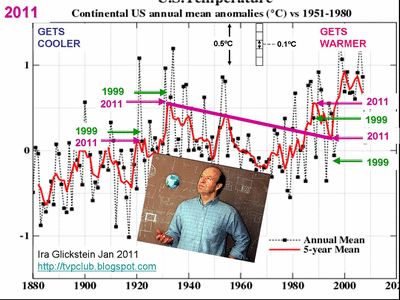Climate change alarmists need to be called to account.
When they talk about global warming, they actually mean three separate things:
1. The world is getting warmer in an unprecedented, or at least highly unusual and alarming, way.
2. This unusual warming is caused by human activity, specifically, the use of fossil fuels.
3. The world getting warmer is a bad thing.
Is the world getting warmer at an unusual rate?
No.
No one argues about the fact that the world is getting warmer.
But the last century has been one of remarkable climate stability. There has been an average global temperature increase of less than 1 degreee Celsius over the last 100 years.
Given that we have just come out of a period of extreme cold that lasted for 500 years, this minor increase is neither unusual or alarming.
This very small rate of warming has continued unchanged except for minor fluctuations for the last 150 years. There is no evidence of any correlation between temperature change and human activity.
The real ‘climate change deniers’ are the global warming alarmists, who persistently ignore or downplay much faster and larger historical changes in climate, or worse, deliberately alter data to make past temperatures look colder, and recent records look warmer.
Everyone has heard of the HadCRUT/Mann/‘hide the decline’ alterations to the twentieth century temperature record.
But even little New Zealand’s official record keepers have done the same thing – changing the temperature record to hide the fact the raw temperature data show no warming at all.
Organisations which depend on creating alarm over alleged climate change in order to gain funding cannot make their case without lies and exaggerations.
More recently the NASA GISS records have been tampered with in the same way.
Comparing the data they offered as fact in 1999 with data they assure us is correct now, it takes two seconds to see that over that ten year period, earlier temperatures have been reduced, while later temperatures have been increased. The resulting graphs change from one that shows a mild and moderate increase in temperature, to one that shows a much greater increase.
From WUWT:
Climate change alarmists need to be called to account.
‘Recent extreme weather events are because of global warming!’
Really? Is there any real world evidence of an increase in the number or intensity of extreme weather events?
‘Our modelling shows…’ No. Forget the computer games. Is there any evidence of an increase in extreme weather events.?
‘Well, no.’
“Sea levels will rise catastrophically!’
Really? Is there any real world evidence of an increase in the rate of sea level rise?
‘Our modelling shows…’ No. Forget the computer games. Is there any evidence of an increase in the rate of sea level rise?
‘Well, no.’
‘The world is warming at an unprecedented rate!’
Really? Is there any real world evidence that recent climate change has been unusual?
‘Our modelling shows…’ No. Forget the computer games. Is there any evidence of unusual warming over the last century?
‘Well, no.’
‘Damaging climate change is caused by human activity! We have to stop using fossil fuels!’
Really? Is there any real world evidence of a correlation between human activity and changes in global temperature?
‘Our modelling shows…’ No. Forget the computer games. Is there any evidence of correlation between human activity and climate change?
‘Well, no.’
Over 100 billion dollars has been spent on this farce.
This money, completely wasted, could have made a real difference if spent on, for example:
- Real environmental issues.
- Disaster – flood/fire/cyclone – preparation and mitigation.
- Fusion research.
- Building roads, hospitals, schools or other infrastructure.
- Eradicating malaria, measles, polio.
The list could go on…
Climate change alarmists need to be called to account.
The climate change farce has to stop.



